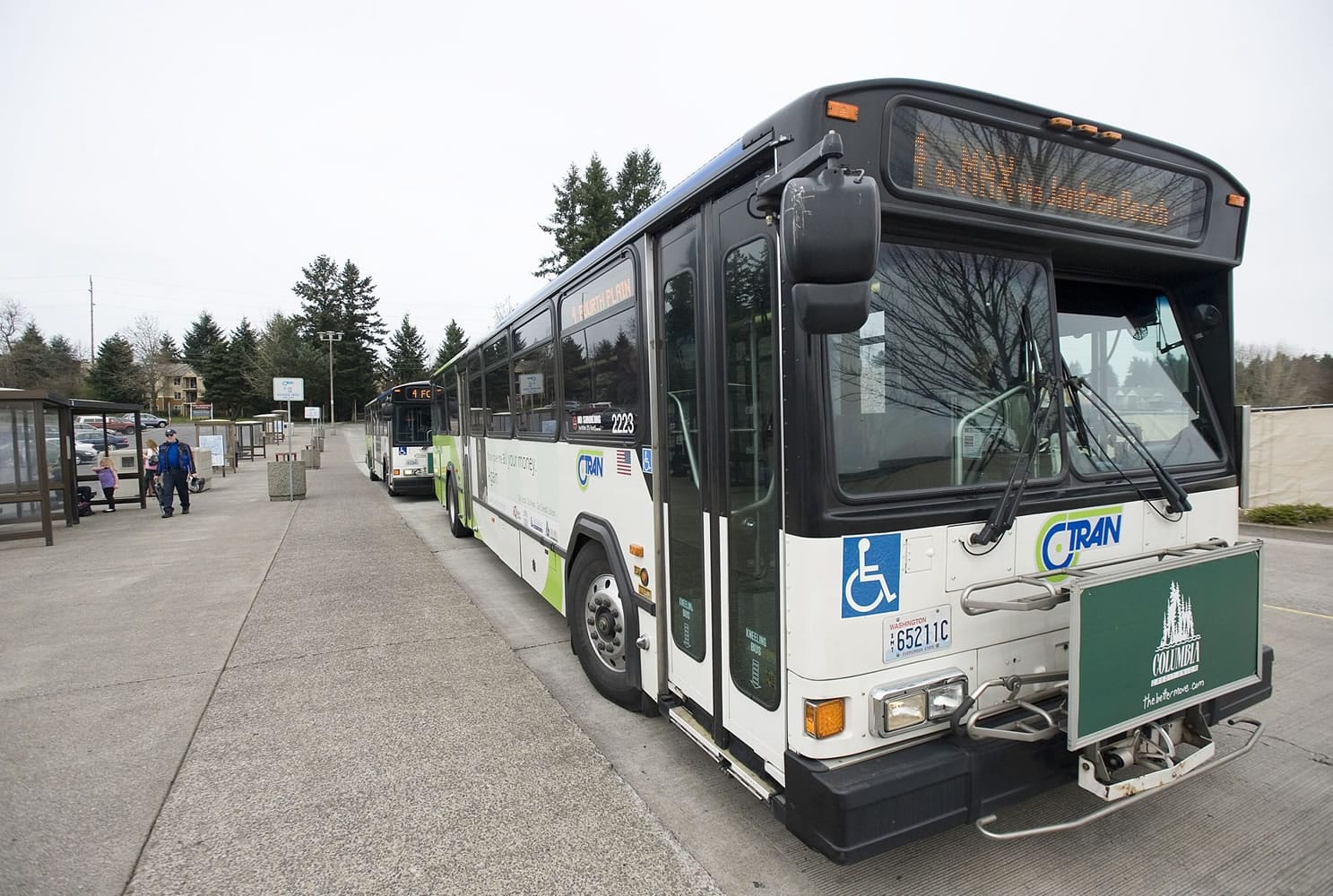In the lead-up to last Tuesday’s election, opponents of Proposition 1 linked the measure to the statewide Initiative 1125 under a “no more taxes” banner. Campaign signs urged a yes vote on the toll-limiting I-1125, and a no vote on the tax-increasing Prop. 1.
Turns out, Clark County voters didn’t see it that way. They voted decisively for both.
The result means C-Tran’s local sales tax rate bumps up from 0.5 percent to 0.7 percent next year, and existing bus service remains whole. It also means the agency will turn its attention to a planned 2012 ballot measure — a sales tax increase to pay for the operation of a proposed bus rapid transit system and a light rail extension into downtown Vancouver.
That’s been a politically charged issue in Vancouver as the Columbia River Crossing megaproject continues to move forward. But Vancouver City Councilor Larry Smith, expected to be C-Tran’s board chair next year, took at least some encouragement from the Prop. 1 vote.
“The message for me is that public transportation is important to people,” Smith said. “It was a good message for me.”
By the time the post-election dust settled, Prop. 1 passed by a margin of about 54 percent to 46 percent. I-1125 failed statewide, but found commanding support in Clark County with more than 58 percent of voters behind it.
So which sentiment carries over to next year: The pro-C-Tran vote? Or the anti-toll vote?
And in the end, do either of those results matter?
Andrew Austin, field director for the Seattle-based advocacy group Transportation Choices, isn’t convinced.
“My take is, we can’t look too much into it — either of those, really,” he said.
Assuming the high-capacity transit vote goes forward, perhaps at least this much is clear:
“It would be a very contentious, highly discussed, close race,” Austin said.
The C-Tran board will gather next month for an afternoon-long workshop at Vancouver City Hall, largely to discuss the agency’s high-capacity transit plans and next year’s ballot measure, said C-Tran public affairs director Scott Patterson. The agenda hasn’t been finalized, as leaders were waiting on the outcome of Prop. 1 to shape it either way.
Among the next steps are meeting deadlines to get the measure on the ballot in November 2012, and forming an “expert review panel” to look over a possible system as part of that process. At least one key question remains unanswered: Whether next year’s vote will include the entire C-Tran taxing district, or a smaller Vancouver-centric subdistrict.
Smith said he hasn’t decided his own position on that, but he is leaning toward favoring a district-wide vote. He stressed that he wants to see the vote happen either way.
C-Tran hasn’t had a chance to fully analyze this week’s election results, Patterson said, particularly on I-1125. But Smith said he suspects the local toll debate around the CRC had a lot to do with Clark County’s support of the statewide measure.
“No one wants tolls. No one on council wants tolls. … I understand the emotion tied up in tolls,” Smith said, later adding: “I-1125 is certainly a fallout from all that’s gone on in the last couple of years.”
That’s not surprising, according to Austin, whose Transportation Choices organization supported Prop. 1. Southwest Washington residents aren’t used to paying tolls — the Interstate Bridge was last tolled in the 1960s, after the second span was completed — and that’s a tough pill to swallow for most, he said.
“There’s definitely some anti-toll sentiment in Clark County, just like there is everywhere,” Austin said.
Economy’s effect
It was April when C-Tran leaders decided to put off the light rail vote and put only the basic bus service measure to voters this year. Some figured the economy would be significantly better by November.
They were wrong.
Heading into next year, things still look bleak. The economy is still shaky. Olympia legislators are talking about big spending cuts. So are federal lawmakers. Prop. 1 overcame many economic obstacles, but time will tell if a light rail vote can muster the same support in Clark County.
“The confidence of folks in government right now is not the best,” Smith said. “It’s just a terrible time.”
Add to that a presidential election, a Congressional race, plus a host of other local contests, and there’s a lot for Clark County voters to think about next year. All of those could jolt the political climate as the high-capacity transit measure gets its shot.
Austin said he’d expect a very different campaign next year. Prop. 1 found favor, but that doesn’t mean each yes vote translates into the same for light rail and bus rapid transit, he said.
“Maybe some of those folks would support high-capacity transit,” Austin said. “Maybe some of them won’t.”
Eric Florip: 360-735-4541; www.twitter.com/col_enviro; eric.florip@columbian.com.




